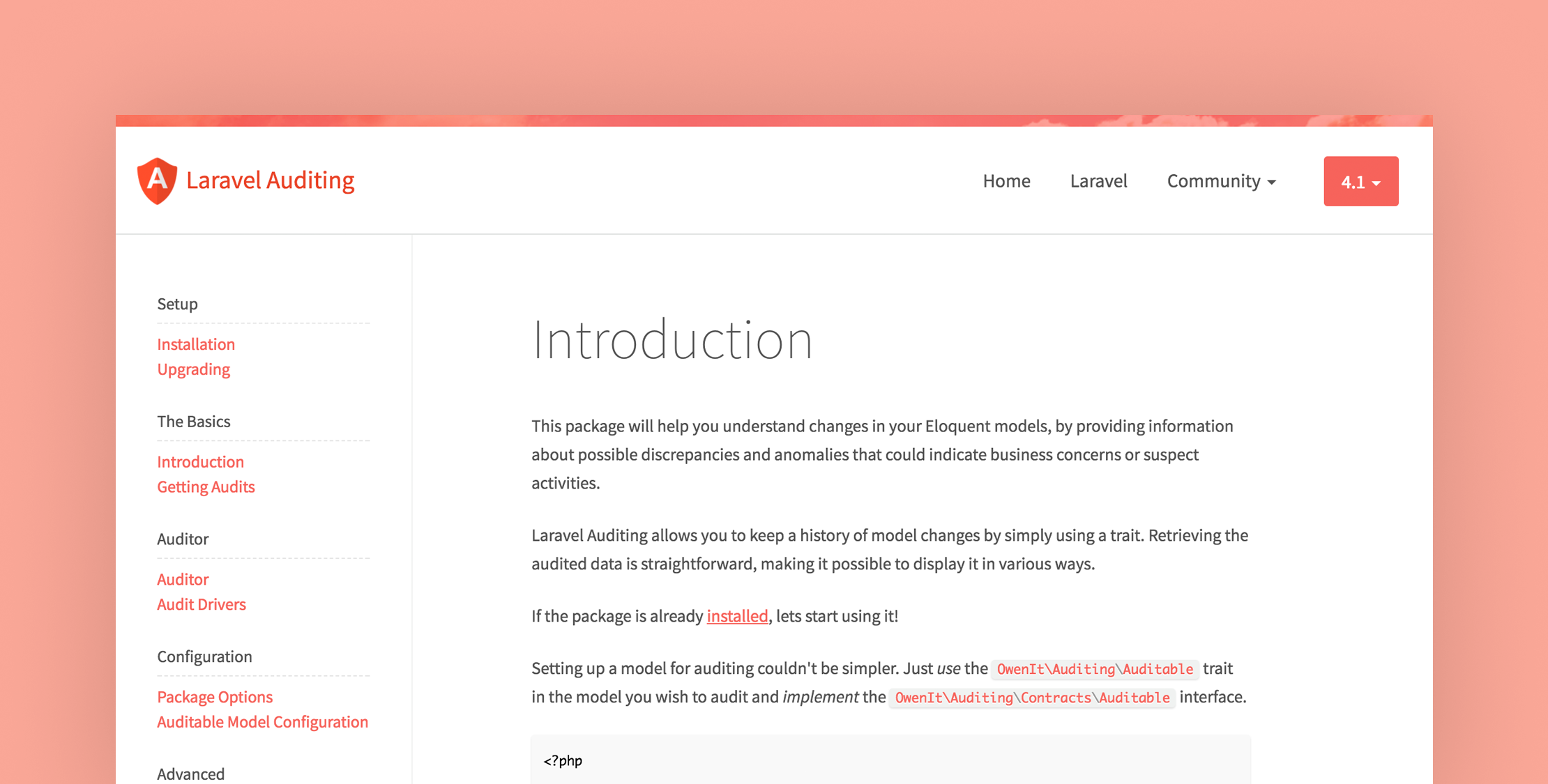Laravel Auditing is a Laravel package that aims to make it easy to track eloquent model changes. The documentation describes Laravel Auditing as follows:
This package will help you understand changes in your Eloquent models, by providing information about possible discrepancies and anomalies that could indicate business concerns or suspect activities.
Laravel Auditing allows you to keep a history of model changes by simply using a trait. Retrieving the audited data is straightforward, making it possible to display it in various ways.
Along with model changes, each audit record contains the User Agent, audit URL, and the IP address of the user. One of the main use-cases of the package is looking at suspicious activities or unexpected changes in the model.
Model Diffs with the Laravel Auditing Package
In my opinion, another use-case for this package could be providing versioning for records, such as blog posts or other content that allows you to see who changed what on a model easily. This could be used to perform auto-saves, see what changed, who changed it and revert changes from a previous version.
Let’s say you have a Post model that holds articles. The following would be how you add auditing to posts when they are saved and updated:
<?php namespace App; use OwenIt\Auditing\Auditable;use Illuminate\Database\Eloquent\Model;use OwenIt\Auditing\Contracts\Auditable as AuditableContract; class Post extends Model implements AuditableContract{ use Auditable; public function user() { return $this->belongsTo('App\User'); }}Although not included in the example above, you can also define with attributes that will be included in the audit with an $auditIncluded = []; property on the model.
With the example Post model, you could get the diffs for a post like so with the Laravel auditing package:
// PostsController with route model bindinguse App\Post; function show(Post $post){ $diff = $post->audits()->with('user')->get()->last(); return view('posts.show') ->withPost($post) ->withDiff($diff);}Here’s an example of how you could display the diffs in a Blade view:
@if($diff) <h3>Post Changes</h3> <div class="author-info"> <span class="byline"> Revision by <strong>{{ $diff->user->name }}</strong> </span> <span class="time-ago"> {{ \Carbon\Carbon::parse($diff->created_at)->diffForHumans() }} </span> </div> @foreach($diff->getModified() as $field => $value) <h3>{{ ucfirst($field) }}</h3> <table class="diff"> <tr> <td style="background: #ffe9e9" class="deleted-line">{{ $value["old"] }}</td> <td style="background: #e9ffe9" class="added-line">{{ $value["new"] }}</td> </tr> </table> @endforeach@endifThe example above only displays the last diff, but you could provide functionality to select the revision number or loop through the entire version history. The audits come back as a collection allowing you to perform collection operations on audits like any other model. The documentation contains audit presentation documentation to give you more ideas on how to present audit changes and metadata.
One thing to note: when I started experimenting with the package I used php artisan tinker to try and create audits. By default, the Laravel auditing package doesn’t track changes to models from the consoles (including tinker). If you have console commands or scheduled commands making changes to models you might want to store audits from the console. You can modify this behavior by publishing and update the provided config with:
<?php return [ // ... 'console' => true,]Lastly, the package allows customizations to the audit model, audit driver (the package ships with the Database audit driver), and customizations to audit transformations before data for an audit is stored.
Check out the documentation for more details on everything you can do with the Laravel auditing package. You can also see the source code on GitHub.











